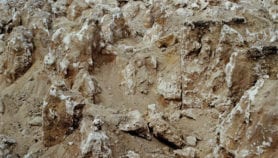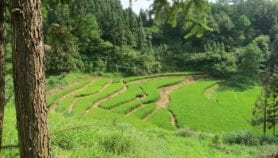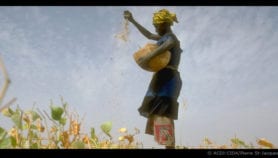Send to a friend
The details you provide on this page will not be used to send unsolicited email, and will not be sold to a 3rd party. See privacy policy.
In the Sahel region of West Africa, decades of scant rainfall and poor farming techniques have left a legacy of creeping desertification. Local people, researchers and human rights activists alike are struggling to cope with the heavy human and environmental toll.
In this feature, Nico Colombant examines the damage and what is being done about it.
Newly arrived desert rodents are one of the biggest problems. These can ravage crops, and also spread diseases through ticks. Borreliosis, for instance — an illness characterised by recurrent fevers — is so similar to malaria that it is frequently misdiagnosed and treated with the wrong medicine.
While some scientists focus on understanding the dynamics of these destructive rodents, others study how to boost the productivity of crops grown in increasingly degraded soil. One idea — inoculating seeds with fungi and bacteria that can improve soil structure — will soon be tested under field conditions.
Desertification also triggers social problems: with fertile soil at a premium, violence has broken out between nomadic herders and farmers. An Oxfam director is now encouraging dialogue between these communities, and also working with the herders to ensure they have enough access to pastures for their animals, which in turn fertilise and revitalise the land.
More on Desert science
News
US$1 million for East African ICT project
[NAIROBI] An organisation that gets multimedia into African villages has won a US$1 million award.12/09/11
News
Namibia’s satellite centre to warn of disaster threats
[WINDHOEK] A new satellite data centre in Namibia will help farmers prepare for27/07/11
Feature
Restoring Tanzania’s ecosystems
Degraded land in western Tanzania is gradually being reclaimed — two decades after ...26/03/08
News
Sub-Saharan Africa news in brief: 25 Feb–12 Mar 2008
Below is a round up of news from or about Sub-Saharan Africa for the period 25 February–12 Marc ...13/03/08
News
Namibia’s poor ‘will be hit hard’ by climate change
Climate change is expected to dramatically alter the lifestyles of poor people in Namibia, say the authors ...13/12/07
News
Soil degradation issues ‘swept aside’, say experts
Soil scientists have called for more targeted research and strict guidelines to stop what they say is the m ...07/09/07
News
UNEP: climate change behind Darfur conflict
[NAIROBI] Climate change that transformed the Darfur region from sustainable agricultural land into a parti ...29/06/07






